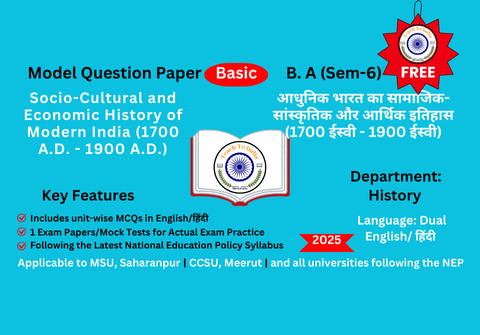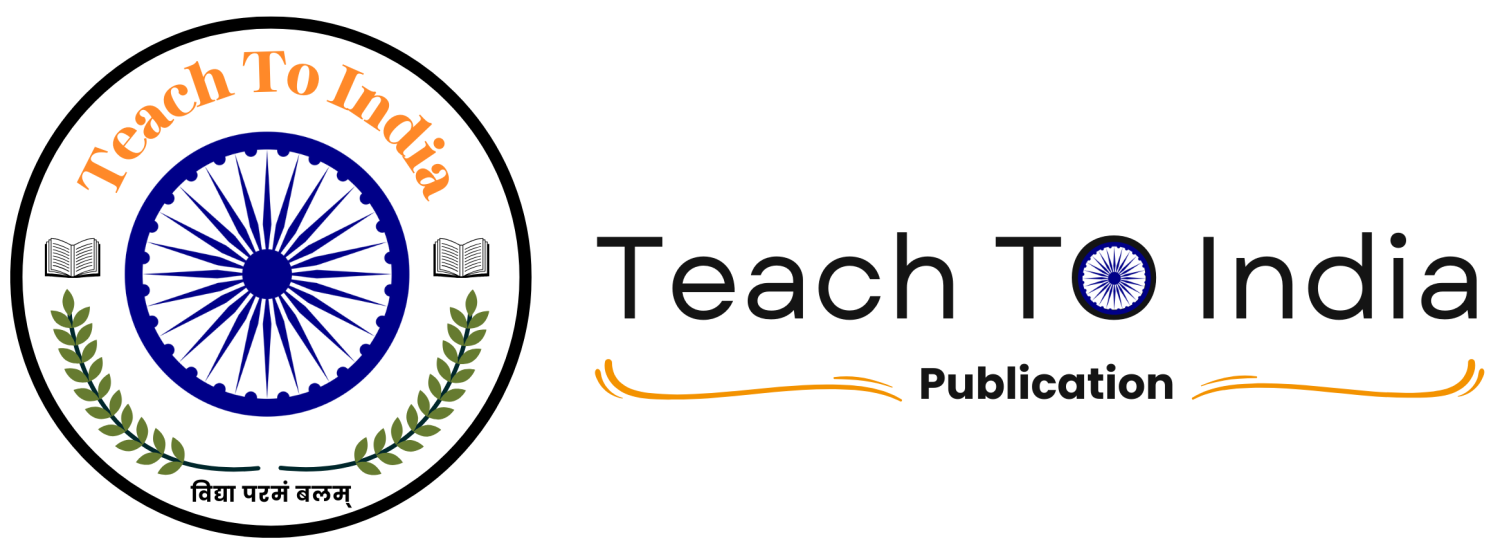Socio-Cultural and Economic History of Modern India (1700 A.D. - 1900 A.D.) - आधुनिक भारत का सामाजिक-सांस्कृतिक और आर्थिक इतिहास (1700 ईस्वी - 1900 ईस्वी)
Exam Preparation for Socio-Cultural and Economic History of Modern India (1700 A.D. - 1900 A.D.) - आधुनिक भारत का सामाजिक-सांस्कृतिक ...
Show more
- Description
- Curriculum
- Reviews

Model Question Paper
Socio-Cultural and Economic History of Modern India (1700 A.D. – 1900 A.D.) – आधुनिक भारत का सामाजिक-सांस्कृतिक और आर्थिक इतिहास (1700 ईस्वी – 1900 ईस्वी)
Key Features | मुख्य विशेषताएँ
- Bilingual Model Paper | द्विभाषी मॉडल पेपर
- Enough MCQ for Practice | अभ्यास के लिए पर्याप्त MCQ
- Exam Practice Paper with Mock Tests | मॉक टेस्ट के साथ परीक्षा अभ्यास पत्र
- Latest Syllabus as per NEP | NEP के अनुसार नवीनतम पाठ्यक्रम
- Designed by Experts | विशेषज्ञों द्वारा तैयार किया गया
The given MCQs cover only 10% of the syllabus | दिए गए बहुविकल्पीय प्रश्न केवल 10% पाठ्यक्रम को कवर करते हैं।
To cover 100% of the syllabus with summaries, upgrade to our Advanced Model Paper.| पूरा सिलेबस और सारांश कवर करने के लिए हमारा एडवांस मॉडल पेपर जॉइन करें। Join Advanced Model Paper
Unit Wise MCQ's
-
1Unit 1: MCQs - Socio-Cultural and Economic History of Modern India (1700 A.D. - 1900 A.D.)
-
2Unit 2: MCQs - Socio-Cultural and Economic History of Modern India (1700 A.D. - 1900 A.D.)
-
3Unit 3: MCQs - Socio-Cultural and Economic History of Modern India (1700 A.D. - 1900 A.D.)
-
4Unit 4: MCQs - Socio-Cultural and Economic History of Modern India (1700 A.D. - 1900 A.D.)
-
5Unit 5: MCQs - Socio-Cultural and Economic History of Modern India (1700 A.D. - 1900 A.D.)
-
6Unit 6: MCQs - Socio-Cultural and Economic History of Modern India (1700 A.D. - 1900 A.D.)
-
7Unit 7: MCQs - Socio-Cultural and Economic History of Modern India (1700 A.D. - 1900 A.D.)
-
8Unit 8: MCQs - Socio-Cultural and Economic History of Modern India (1700 A.D. - 1900 A.D.)
Stars 5
1
Stars 4
0
Stars 3
0
Stars 2
0
Stars 1
0







